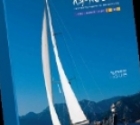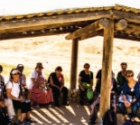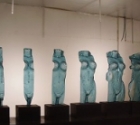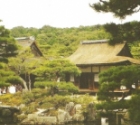-1451203721.jpg)
Caspian Sea Photo by: Blondinrikard Froberg-www.flickr.com
When I hear the tirades against Israel and the call for its destruction by Mahmoud Ahmadinejad, the president of Iran, I think back to 1952 when I made an unforgettable visit to Iran.
There was no diplomatic relationship between Israel and Iran so there were no direct flights between the two countries. However an American company, Middle East Airlines, flew to Iran and brought Kurdish Jews to Israel. The planes travelled from the United States via Israel to Iran and I managed to hitch-hike a lift. I soon realized that I was the only passenger on the plane.
When we arrived at the Teheran airport, I found there were difficulties I had not anticipated. I had no way of communicating with the people as hardly anyone understood English.
I made my way to a hotel. The other people staying there were men from Russia, the United States or England, each on a mission in the fields of industry, agriculture or even arms trafficking.
On the first evening, I was presented with a bouquet of flowers, as a gesture, since I was the only woman staying in the hotel. I used to be invited to dinner so I became acquainted with many of the people staying there.
In Israel, I had been given a letter of introduction to a young Iranian journalist, Ahmed, who spoke English. For the price of a beer, he used to come to the hotel everyday and tell me the latest news.
Afterwards, I realized that there were probably people behind his visits who were keen that I should hear not only the official news but what was really going on in the country.
After much effort, I managed to get an interview with the Shah, Mohammed Reza Pahlavi, the last Shah to reign in Iran. I was taken by car to his marble palace on the outskirts of Teheran. The Shah had been educated in England and spoke fluent English. For twenty minutes he told me of his seven year plan to develop agriculture and industry in Iran.
Later, Ahmed told me that the government was corrupt and the people were very dissatisfied with the progress the Shah was making, his leanings towards the West and his restrictions on religious power. Eventually after a long reign, the Shah was forced to flee the country and an Islamic Republic was founded.
One of my most memorable trips was to the Caspian Sea. I met an English journalist who was sponsored by Austin Motors and was going round the world in a Baby Austin. We managed to get a permit to travel up to the Caspian Sea although this was a restricted area which tourists were not allowed to visit. It was a long trip and it took two days to get there. We travelled along a road cut through the mountain and on either side were huge canyons. At last we arrived at the Caspian Sea. Only the southern area was in Iranian hands, while the large northern area belonged to Russia. We could see armed Russians guarding the northern part of the Sea – the largest inland sea in the world.
We stopped at a town, Pahlavi. There was a grand hotel there but we were the only people staying there.
The chief product of this area was rice and the whole area was luxuriant with rich subtropical vegetation.
The area was renowned for the sturgeon fish and we watched them being ripped open for the precious caviar, one of the greatest assets of the country.
Back in Teheran, I wondered how I would ever get back to Israel. My money was depleted and the Jewish Agency official told me that the Middle East Airline was for the Kurdish Jews who had escaped from Iraq and were languishing in a cemetery on the Iranian border without food.
Eventually after a long delay, I was given a place on one the planes. We travelled to Israel, packed together on benches, elbow to elbow. Some of the women were frightened that their jewellery would be confiscated and they asked me to take care of it. So I travelled back with bracelets from my elbow to my wrists, which I handed back to them later on.
I will never forget our arrival in Israel. The Kurdish Jews squatted on the ground and kissed the soil – their dream had come true and at last they had reached Israel. They were scattered throughout the country and it took time but eventually they lost their Kurdish identity and blended in with the rest of the Israelis.
 (350x156)-1452331757.jpg) Magazine Volunteers on a Summer's Evening
Magazine Volunteers on a Summer's Evening (350x246)-1452331346.jpg) ESRA Tel Aviv in the Community
ESRA Tel Aviv in the Community Honoring our Distributors of over 25 years
Honoring our Distributors of over 25 years From Bible to Bedouins and Battles
From Bible to Bedouins and Battles Trip to the Dead Sea
Trip to the Dead Sea Japan
Japan